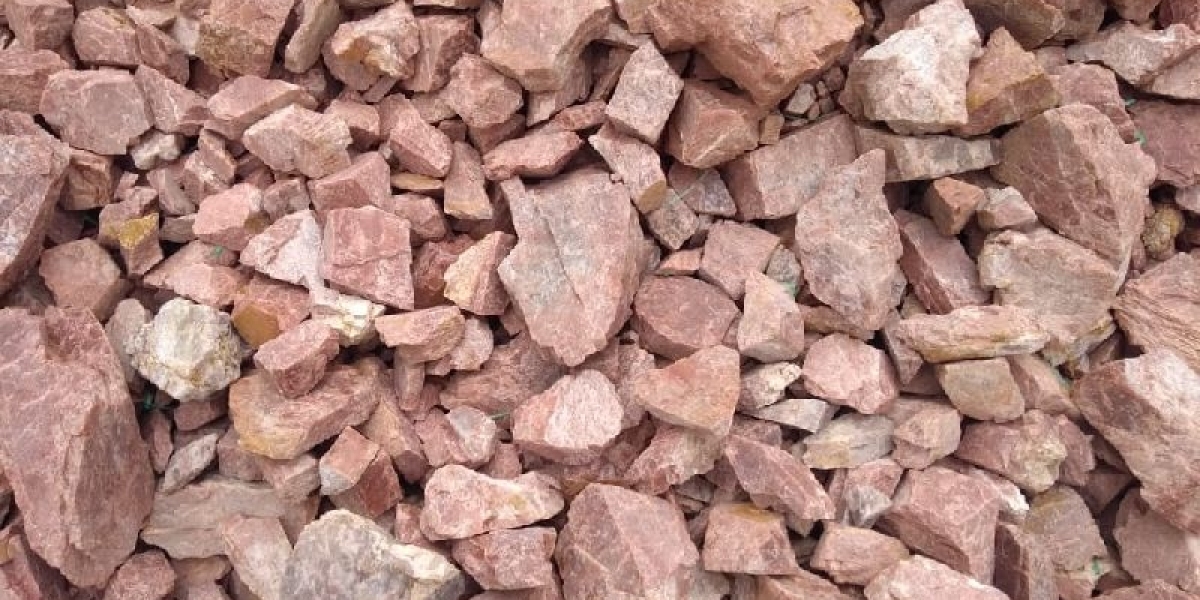Introduction
Soda feldspar, a crucial component in ceramic production, plays a significant role in determining the durability and overall quality of ceramic products. Ceramics are widely used in various applications, from household items to industrial components, and their longevity depends on several factors, including the type of feldspar used. In this analysis, we will explore how soda feldspar influences the durability of ceramics, the mechanisms behind its impact, and the benefits it provides in the production process. Additionally, we will briefly discuss how companies like Mactus Mineral LLP are leveraging soda feldspar in their operations to enhance the durability of their ceramic products.
Understanding Soda Feldspar
Feldspar is a group of rock-forming minerals that constitute a significant portion of the Earth's crust. Among them, soda feldspar is a variety of feldspar rich in sodium, characterized by the chemical formula NaAlSi3O8. This mineral is often used in the ceramic industry due to its fluxing properties, which reduce the melting temperature of the raw materials, allowing for efficient and economical production of ceramics.
Soda feldspar is essential in the ceramic glaze formulation and body composition, where it acts as a key flux agent. Fluxes help lower the melting point of the other raw materials in the ceramic mixture, facilitating the formation of a glassy phase during the firing process. This glassy phase contributes to the strength, hardness, and durability of the final ceramic product.
Soda Feldspar’s Impact on Ceramic Durability
Durability in ceramics refers to the ability of the material to withstand physical and chemical wear over time without degrading. Several factors contribute to the durability of ceramics, including their chemical composition, the firing process, and the microstructure of the final product. Soda feldspar impacts these factors in multiple ways:
- Formation of a Glassy Matrix: Soda feldspar plays a vital role in the formation of a glassy matrix within the ceramic body. During firing, soda feldspar melts and reacts with other components in the ceramic mixture, such as silica and alumina, to form a glassy phase. This phase is crucial for filling the pores within the ceramic structure, resulting in a denser and more impermeable material. The reduction in porosity directly enhances the durability of the ceramic by minimizing the pathways through which moisture and other degrading agents can penetrate and cause damage.
- Improvement of Mechanical Strength: The incorporation of soda feldspar in ceramics enhances their mechanical strength. The glassy matrix formed by soda feldspar contributes to the binding of the ceramic particles, resulting in a more cohesive and structurally sound product. This increased strength makes the ceramic less prone to cracking, chipping, and breaking under mechanical stress, thereby extending its lifespan and reliability in various applications.
- Chemical Resistance: Soda feldspar also contributes to the chemical resistance of ceramics. The glassy phase that forms during firing creates a barrier that is resistant to chemical attacks, such as those from acids and alkalis. This chemical resistance is particularly important in industrial ceramics, where the materials are often exposed to harsh environments. By incorporating soda feldspar, manufacturers can produce ceramics that maintain their integrity and performance even in corrosive conditions.
- Thermal Stability: Ceramics are often subjected to high temperatures, and their ability to withstand thermal stress is a critical aspect of their durability. Soda feldspar enhances the thermal stability of ceramics by promoting the formation of a stable crystalline structure during the cooling phase after firing. This structure allows the ceramic to maintain its shape and strength even when exposed to temperature fluctuations, reducing the risk of thermal shock and subsequent failure.
- Optimization of Firing Process: The fluxing properties of soda feldspar allow for the optimization of the firing process in ceramic production. By lowering the melting point of the mixture, soda feldspar enables manufacturers to use lower firing temperatures, reducing energy consumption and production costs. More importantly, this controlled firing process ensures that the ceramic body is uniformly vitrified, leading to a more consistent and durable final product.
Industrial Applications and Benefits
The benefits of soda feldspar in enhancing the durability of ceramics have led to its widespread use in various industrial applications. From tableware to sanitary ware, tiles, and industrial ceramics, soda feldspar is a critical ingredient in the production of high-quality, long-lasting products.
- Tableware: In the production of tableware, durability is a key factor, as these items are subjected to daily use and frequent washing. Soda feldspar helps create tableware that is resistant to chipping, scratching, and staining, ensuring a longer service life.
- Sanitary Ware: Sanitary ware products, such as sinks, toilets, and bathtubs, require excellent mechanical strength and chemical resistance to withstand the harsh conditions of bathrooms. Soda feldspar contributes to the robustness and longevity of these products, making them reliable and durable.
- Tiles: Tiles used in flooring and wall coverings must be durable to resist wear, impact, and moisture. Soda feldspar enhances the durability of tiles by improving their mechanical strength and reducing their porosity, making them ideal for both residential and commercial applications.
- Industrial Ceramics: In industrial applications, ceramics are often exposed to extreme conditions, including high temperatures and corrosive environments. Soda feldspar ensures that these ceramics maintain their performance and structural integrity over time, even under challenging conditions.
The Role of Mactus Mineral LLP
Mactus Mineral LLP is a prominent player in the mineral supply industry, providing high-quality soda feldspar to ceramic manufacturers. The company understands the importance of soda feldspar in enhancing the durability of ceramics and has developed a reputation for delivering consistent and pure mineral products. By supplying soda feldspar with the ideal chemical composition and particle size, Mactus Mineral LLP helps manufacturers produce durable ceramics that meet the demands of various industries.
Conclusion
Soda feldspar is an indispensable component in the ceramic industry, significantly contributing to the durability of ceramic products. Its ability to form a glassy matrix, enhance mechanical strength, provide chemical resistance, and improve thermal stability makes it a key ingredient in producing high-quality, long-lasting ceramics. As the demand for durable ceramics continues to grow, the role of soda feldspar, and companies like Mactus Mineral LLP that supply it, will remain critical in ensuring the production of reliable and durable ceramic products. By leveraging the unique properties of soda feldspar, manufacturers can create ceramics that not only meet but exceed the expectations of consumers and industrial users alike.








